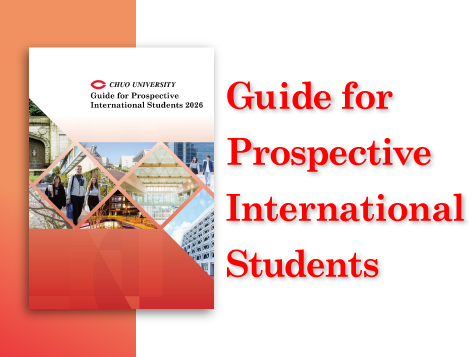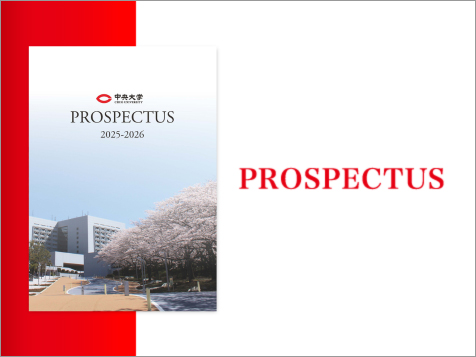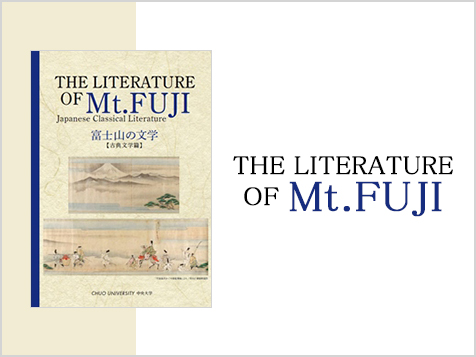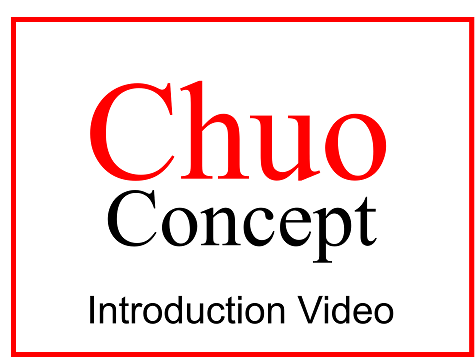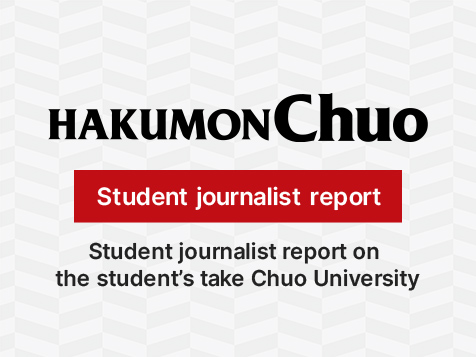Academics
Law School (Chuo Law School)
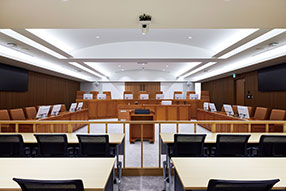
The Chuo Law School (CLS) was established in 2004 to fulfill the new national objectives of reforming judicial and/or legal education system to foster legal professionals who are adequately capable of meeting the complex and diverse needs of today’s society, and to meet demands to establish a professional graduate school having the capability of fostering the higher education which is necessary in the sophisticated and globalized society and economy.
As the core of new national system to develop and nurture legal professionals, CLS provides the high level of legal education that links the theoretical with the practical.
Graduates of CLS will be awarded a Juris Doctor degree (J.D. [specialist]). Holders of J.D. will be eligible to sit for the New Bar Examination introduced in 2006. One of the biggest law schools in Japan, CLS is providing six models for education and training; (1) “home lawyers” who are closely involved in the day-to-day activities of the people, (2) corporate lawyers, (3) external and international affairs lawyers, (4) advanced science and technology lawyers, (5) public policy lawyers, and (6) criminal lawyers. In line with 120 years tradition and achievements, and with our alumni network of legal professionals that covers one of every five members in Japan’s legal community, Chuo University and CLS will continue to grow and provide the finest legal education.
URL: https://www.chuo-u.ac.jp/academics/pro_graduateschool/law/
Inquiries: Office of the Chuo Law School
Tel: 03-6261-8532
Fax: 03-6261-8530
Overview of Chuo Law School
Program
The program is comprised of five curricula. Each curriculum is taught based on the syllabus shown below.
1) Basics of Law Curriculum
Specialized study of the fields of basic law (public law, civil law, criminal law) is based around the case method. The Socratic Method, where the members of the class interactively participate in the lecture, is employed to cultivate more effective ways to use the law.
[Examples of Courses]
Advanced Studies in Public Law, Advanced Studies in Civil Law, Advanced Studies in Criminal Law.
2) Basics for Practicing Law Curriculum
Students gain real-life experience working in such places as the legal clinic or getting training in an externship program at law offices. These courses place a strong emphasis on practical experience, giving the students the opportunity to develop problem-solving skills.
[Examples of Courses]
Professional EthicsⅠ・Ⅱ, Moot Court Practice (Civil, Criminal)
3) Basic Law and International Law Curriculum
Fostering a high sense of ethics and a high degree of competency, and keeping with the traditions handed down from its founding as the Igirisu Horitsu Gakko, Chuo University, the curriculum includes a wide array of courses on Anglo-American law, providing the students with the fundamentals needed to study at law schools abroad.
[Examples of Courses]
Anglo-American Public Law, European Legal System, Foreign Law Seminar, Asian Business Law
4) Developmental and Specialized Law Curriculum
In addition to the fields of basic law, the University makes full use of its assets as a comprehensive educational and research institution to provide a quality education that is theoretical and practical in developmental and specialized fields of law.
The curriculum offers high-level and pragmatic courses which are also offered at the Faculty of Law, including Insurance Law, Economic Law, Intellectual Property Law, International Private Law, Labor Law, Information Law, Taxation Law, and General Study of International law.
[Introductory Courses]
Legal Disputes in Daily Life, Gender and Law, Strategies of Business Law Practice, Policy-making and Law, Alternative Dispute Resolution (ADR), Contemporary Law of Security
[The Field of Business Law]
Corporate Finance and Law
Business Transactions and Law
Venture Business and Law
Business Reorganization Law
Creditor's Rights Law
International Transaction Law
International Economic Law
[The Field of Public Interest]
Medical Practices and Law
Environmental Law
Consumer Law
IT Society and Law
Entertainment/Sports Law
[The Field of Public Policy]
Administrative Litigations Practice
International Human Rights Law
Community Safety Policy and Law
Juvenile Law
Offender's Correction and Law
5) Seminars and Thesis Writing
In addition to the developmental and specialized law courses, a number of small seminars, each based on a theme selected for study and limited to around 10 participants, are also offered.
Graduate students in the Law School who wish to go on to the doctorate program can take the Thesis Writing (worth 4 credits) in place of writing a Master's Thesis.
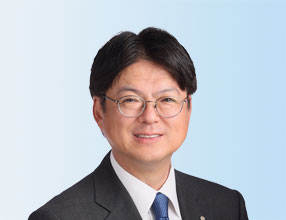
Ongoing Challenges Toward a Future Beyond “Hakumon” ---- Invitation to Chuo Law School
“Law is a mirror that reflects society.” You may come across this phrase when studying law.
Under the former Civil Code, it was stipulated that, although the child is born to the same parent, when a parent passes away, a child born out of wedlock shall be entitled to an inheritance share equal to one-half that of a legitimate child, even if they share the same parent. This provision repeatedly prompted lawsuits, challenging that the provision violates Article 14 of the Constitution of Japan, which provides that “all people are equal under the law.” However, the Supreme Court rulings issued in 2000, 2003, and 2009 upheld that, despite some dissenting and supplementary opinions, the provision of the prior Civil Code was constitutional.
Yet, in 2013, the Supreme Court ruled that the provision of the prior Civil Code is unconstitutional, because there was no rational basis to distinguish the two parties under Article 14 of the Constitution of Japan; therefore, the provision shall be invalid. In response, the amendment to the Civil Code was enacted at the end of 2013, prescribing that the inheritance of a wedlock and an out of wedlock child shall be equal.
At the time the previous Civil Code was enacted, few people may have questioned its provisions. However, as times passed, social attitudes toward family evolved. In a society that increasingly values respect for children and the protection of their rights, the Supreme Court decided to overturn its previous precedents. In other words, the shift in Supreme Court precedent can be exemplified as a mirror that reflects a transformation in the public mindset.
The foundation of the Chuo Law School cannot be spoken of without mentioning the establishment of Igirisu Horitsu Gakko (English Law School) in 1885. The eighteen young attorneys who established the English Law School preserved their founding philosophy, “Fostering the Ability to Apply Knowledge into Action,” in a newspaper advertisement. In England, as in the US, the legal system developed through the accumulation of precedents. Therefore, it is inevitable to examine past precedents thoroughly and learn how individual cases were actually handled in order to use the practical application of law. Studying the process and outcomes of actual cases (=Knowledge) is material that connects to acquiring (=Fostering) the power (=Ability) to challenge (=Apply) new issues. This phrase, which is also our founding spirit, reminds us that, besides gaining knowledge through law books or law courses, practical experience of law by analyzing precedents, which serves as a mirror that reflects society, is indispensable when studying law.
Chuo Law School has continuously embraced new challenges amid the constant reform of Japan’s legal education system. We take pride in upholding and passing down our distinguished tradition as the “Chuo of Law.”
An integrated five-year undergraduate and graduate program, “3+2” (three-year undergraduate and two-year graduate) system has been introduced, and students are permitted to take the bar exam before graduation. In response to such transformation, Chuo Law School has comprehensively reviewed and improved our curriculum from the students’ point of view. We are committed to meticulously supporting our students' success on the bar exam through close collaboration between academic and practicing faculty members. Beyond the classroom, students have opportunities to participate in seminar courses featuring young alumni attorneys as practical lecturers who also offer consultations for our students. Furthermore, Chuo Law School enhances students’ learning experiences by offering extracurricular courses, legal training programs, on the same campus. Chuo University thus provides a fulfilling support system for students to study proactively.
In addition, Chuo University has a network of more than 5,000 alumni across Japan who are members of the Chuo University Law Alumni Association. Collaborating with these members, we organize externship programs and strengthen our support systems to help students pursue their careers in diverse fields. We also place strong emphasis on supporting students in their career development after passing the bar exam.
Lastly, Chuo Law School partners with the law faculties of eleven universities nationwide (including the Faculty of Law in Chuo University), aiming to increase the number of legal professionals in the country.
Chuo University is also known as “Hakumon (White Gate),” a gate that has always been at the forefront of practical legal education alongside the transition of eras. Why not step through the Hakumon and explore the future, viewing society through the lens of law? We look forward to shaping such a future with you.
Shuichi MIYASHITA
Dean, Chuo Law School

